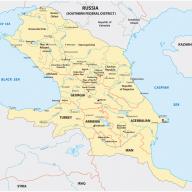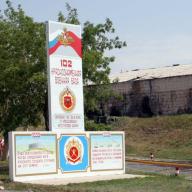The Nagorno-Karabakh conflict is becoming an arena for wider security issues between major players in the region, including Russia, Turkey, Iran, the EU and the USA.
Related commentary:
3 Mar. 2014: Preventing a new division of Europe
The crisis in Ukraine poses the most serious challenge to European security since the end of the cold war, and highlights the urgent need to refashion European security so that it is capable of managing the new environment that has developed in the region. The Organisation for Security and Cooperation in Europe (OSCE) is the only actor capable of bringing the current crisis to an end and of building long-term peace and stability in Ukraine and the wider region.
6 Feb. 2014: Sochi Olympics will leave a questionable legacy for Caucasus conflicts
The 22nd Olympic Winter Games in Sochi have already attracted a deluge of international press coverage. The January attacks in Volgograd and reports of possible 'black widow' suicide bombers have brought the issue of terrorism and the security of the Games into focus. The Russian security authorities have established an unprecedented security and surveillance operation, with over 40 000 police and armed forces personnel involved in securing the Games. While every step is being taken to isolate participants from violence, the Games themselves have already become part of the region’s conflicts, writes SIPRI’s Neil Melvin.
Taking stock of international security
Perceptions of threats to security are both individual and shared. Currently, many share concerns about recent developments in Iran and North Korea, while many also see in the new approach of the United States a glimpse of hope. SIPRI—with its mandate to ‘contribute to an understanding of the conditions for peaceful solution of international conflicts’—aims through its annual SIPRI Yearbook to provide a basis on which threats can be assessed and to deliver the most relevant facts for the debate.


